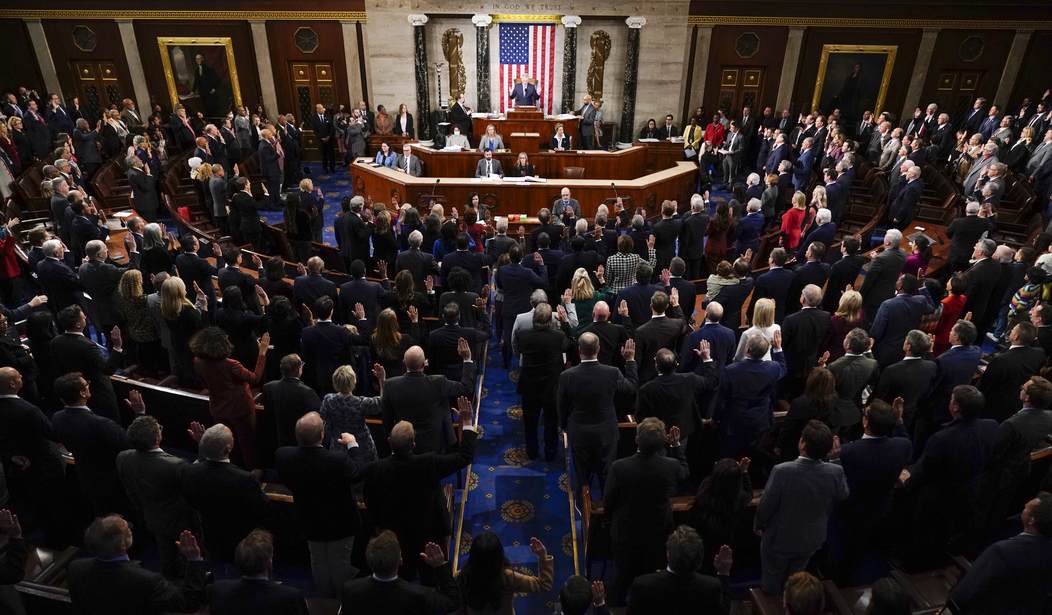The immovable object is getting ready to meet the irresistible force in Congress as partisan warfare over the conflicts in Ukraine and Israel, the fate of Taiwan, the security of the U.S. border, and two budget deadlines will come to a head in less than a month.
First up, the passage of money for Israel (which everyone in Congress wants), Ukraine (which a majority of members want), money to help Taiwan remain independent (with everyone in favor), and border security (everyone now wants it, but no one can agree on how).
Then there are two deadlines Congress must meet to fund the government. There's a deadline on Jan. 19 to fund several offices including Housing, Transportation, and the Department of Agriculture. Then two weeks later on Feb. 2, the second deadline for funding the rest of the government, including the Pentagon, will lapse.
Recall that all of this should have been finished by Sept. 30 of last year. Why should we expect Congress to accomplish what it couldn't do four months ago?
With both Ukraine and Israel needing the weapons Washington has announced it will send and the fact that something absolutely, positively must be done about border security, we might expect some action from Congress. But Democrats are dragging their feet on changes to the asylum system, among other reforms.
Biden is going to have to lean on Democrats to get something done. But the funding bills are already in trouble with the more conservative GOP members who have pledged not to vote for anything less than the border bill the House passed last year. That bill set far stricter limits on asylum than even many Republicans agreed to.
And if Speaker Mike Johnson (R-La.) tries to pass the funding request with mostly Democratic votes, he could suffer the same fate as former Rep. Kevin McCarthy (R-Calif.), who was unceremoniously dumped as speaker.
That's not even the hard part.
The real test will come when the first spending deadline of Jan. 19 comes and the House is nowhere near any kind of deal to fund those departments. Will Johnson offer a continuing resolution to keep the lights on? Or will he look to keep working to fund the entire government until Sept. 30, 2024?
Absent a broader agreement, Congress will face pressure to again pass a stopgap bill, but prominent lawmakers are already warning against the possibility of a stopgap, known as a continuing resolution, or CR, that would last a full year.
“A CR is simply unacceptable for a year. It’s devastating, particularly for defense, and we’ve got all of these wars going on, so we need to reach an agreement on the top line and get about getting an outcome as soon as possible,” McConnell said in December.
After Johnson was elected speaker, a number of conservatives signaled they would give him time to find his footing in the job after former Speaker Kevin McCarthy was ousted by a conservative revolt. Cracks have already begun to emerge, however, and it’s not clear how much more of a grace period the new speaker will get.
Right now, Republicans in Congress have passed seven of 12 funding bills for the departments. The Senate has passed three "omnibus" spending bills for the entire government. Both sides are so far apart that it's probably impossible to bridge the divide and emerge with single spending bills for the departments.
That's probably why once again, Congress will be forced to pass an omnibus funding bill to fund the government from sometime in February until next Sept. 30.
“I think we’re going to end up with one of two things: either an omnibus or a yearlong CR [Continuing Resolution],” Sen. John Kennedy (R-La.), an appropriator, said. “And I’m not sure that an omnibus that would be put together by [Senate Majority Leader Chuck Schumer (D-N.Y.)] and his team will get 10 Republican votes.”
“If I were betting between the omnibus and the CR, I would bet on the CR right now,” he said. “Now, that doesn’t mean that’s what I prefer, but if you asked me the odds, I would say, if it comes down to omnibus [or] CR, CR wins.”
Republicans are rightly sick and tired of government by CR. It's incredibly wasteful as the usual practice is simply to add a few tens of billions in spending for each department.
But absent any kind of comity or trust, it's just about the only option to fund the government at all.










